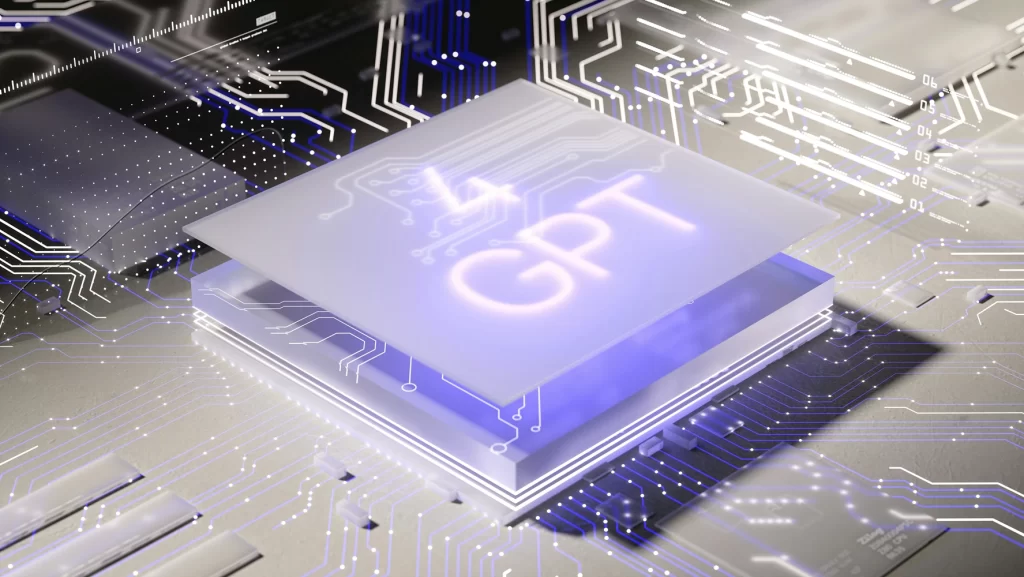In recent times, artificial intelligence (AI) technology has improved so much that it can now copy a person’s voice very quickly. Not too long ago, AI needed minutes of someone’s voice to learn how to imitate it. Now, it only needs 15 seconds.
OpenAI, a company that Microsoft supports and is known for creating ChatGPT, has developed a new technology called Voice Engine. This technology can take a short, 15-second piece of someone talking and use it to recreate their voice. Then, by typing in text, the AI can generate new speech in that person’s voice, making it sound real and full of emotion, almost exactly like the original person.

OpenAI is being very careful with this technology. They understand it can be used in wrong ways, like tricking people into thinking they are talking to someone they know over the phone to steal money from them. There are also worries about how it could affect elections or take away jobs from voice actors. Voice actors might be forced to let machines use their voices for a much lower price than they would get if they did the work themselves.
Despite these concerns, there are good ways this technology could be used. For example, it could help people who can’t read by reading to them in a natural and varied voice. It could also make it easier to translate videos and podcasts into other languages quickly, which is something Spotify is trying out. Plus, it could allow people who are losing their ability to speak because of illness to communicate using a voice that sounds like their own.
OpenAI has put examples on its website showing how close the AI-generated voice sounds to the real thing. They are very impressive. Now, let’s understand the aspects of voice cloning technology, its potential, concerns, and ethical considerations.
Voice cloning is a technology that allows a computer to analyze how a person speaks and then recreate that voice. This means it can mimic the tone, pace, and emotion in the voice. As the technology gets better, the amount of voice sample needed to clone a voice reduces, which is why OpenAI’s new technology only needs 15 seconds of audio.
The ability to clone voices has several positive uses. For individuals who cannot read, having content read out in a comforting and familiar voice can make learning and entertainment more accessible and enjoyable. For non-native speakers, instant translation of audio content removes language barriers, making information and entertainment more universal.
Moreover, preserving one’s voice can be a gift to those facing diseases that rob them of their ability to speak. Imagine being able to communicate with your loved ones in your voice, even as your physical ability to speak fades.
However, the power to replicate a voice accurately carries significant ethical and security implications. The potential for misuse in scams, as mentioned, is a grave concern. The ability to make anyone say anything can lead to serious consequences in personal relationships, financial security, and even national security during elections.
Voice actors and professionals whose livelihoods depend on their unique vocal talents also face uncertainty. As AI becomes capable of replicating human voices accurately, the demand for human voice recordings could decrease, potentially diminishing their earning opportunities.
OpenAI is aware of these dual aspects of voice cloning technology—the beneficial and the potentially harmful. Their cautious approach aims to balance innovation with responsibility. By engaging in discussions about the responsible use of synthetic voices, OpenAI seeks to navigate the ethical landscape and explore safeguards against misuse.
As we look towards the future, the conversation around voice cloning technology is just beginning. The technical achievements are undeniably impressive, but they also prompt us to consider important questions about privacy, consent, and the preservation of human uniqueness in the digital age.
Will legislation catch up to technology, ensuring voice clones are used ethically and with permission? How will society adapt to a world were hearing a familiar voice no longer guarantees the presence of a familiar person? These are some of the questions we must consider as we stand on the brink of this new technological frontier.
As OpenAI and others continue to develop and refine voice cloning technology, the focus must remain not just on what the technology can do, but also on what it should do. By fostering open dialogue and prioritizing ethical considerations, we can harness the potential of voice cloning to enhance lives while safeguarding against its potential for harm.





